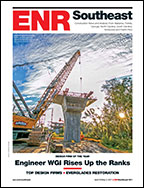Even if it met the minimum standard for ethical conduct, the State Dept.'s environmental consultant for the controversial Keystone XL pipeline project, Cardno Entrix, should have refrained from taking the job in order to avoid any appearance of a conflict of interest, says an expert on engineering ethics and environmental work.
“It's got to be above suspicion of doing something sneaky,” says Aarne Vesilind, former professor of engineering at Bucknell University, Lewisburg, Pa., and the author of books on engineering ethics.
According to engineering ethical codes, all Cardno Entrix had to do before being hired was disclose the company's prior work for TransCanada, the pipeline's developer. TransCanada paid for Cardno Entrix's work on the environmental review for the Dept. of State. Exactly what was disclosed is unclear. Cardno Entrix referred calls to the State Dept., which only confirmed that the consultant had conducted the hearings on environmental impact for the State Dept. and that the costs were paid by TransCanada.
One expert on engineering ethics says that, in the absence of an applicable federal law, regulation or policy, there appears to be no conflict. “As long as there is full prior disclosure and transparency by the engineering company to all affected parties and [they] agree” to allow the work to be done, the arrangement should pass muster, says Arthur Schwartz, who is general counsel and deputy executive director of the National Society of Professional Engineers, Alexandria, Va.
Criticism of the pipeline project has been vocal and loud, including numerous demonstrations in Washington, D.C. Friends of the Earth, an environmental advocate, contends that Cardno Entrix's objectivity very likely was compromised by its prior work for TransCanada and that the whole arrangement reeks of the cozy relationships that lead to a favorable draft environmental report.
Is the Environment an Afterthought?
Vesilind suggests Cardno Entrix tarnished the image of engineering by taking the job. “An honorable firm would have said, 'We don't want to be in a situation where people would even suspect that our advice may be tainted.' The appearance [of impropriety] is what you walk away from.”
Engineering ethics codes require engineers to hold paramount the health, safety and welfare of the public. Whether engineers owe a special obligation to the environment is not spelled out.
“The codes don't say anything about frogs or squirrels or trees or climate change as it affects the rest of nature, separate from humans,” says Vesilind.



Post a comment to this article
Report Abusive Comment